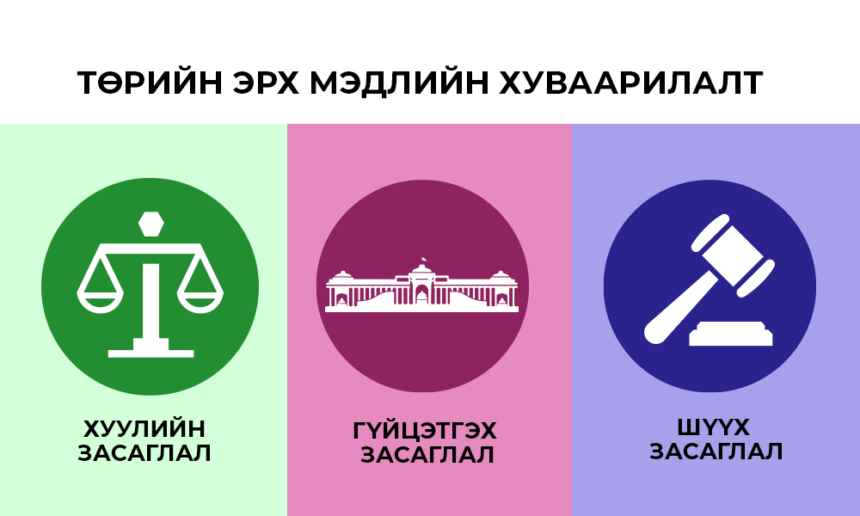The main reason Mongolia has been caught up in a developmental deadlock (traffic congestion, air pollution, poverty, emigration, social inequality, corruption, and the devaluation of the tugrik) thirty years after its democratic revolution can be attributed to the deviation in the distribution of state power. In a democratic state with a market economy, state power is divided into three branches: legislative, executive, and judicial, which must exist in balance and mutual control to ensure social and economic development. However, we have come to a point where it is a semi-presidential, semi-parliamentary system, with the president pulling the strings for the judiciary while the executive branch is all talk and no action.
The judiciary’s actions and decisions have become unclear, and Mongolia faces a severe lack of justice. Court proceedings are often closed to the public, and the reasons for arrests remain shrouded in secrecy, as well as the delays in trials, or acquittals. It has become commonplace for individuals involved in corruption and embezzlement of public funds to evade punishment, manipulate the law, or even behave as though they are triumphant heroes. The grand anti-corruption operations named “the five SH,” have become the “five shush” operations. Crimes such as the SME loans case, the Development Bank fraud, coal theft, and education loan scams have all faded into obscurity.
State-owned companies dominate the economy again, operating at a loss, while oligarchs devour small businesses. Illicit trades for plots of land, buildings, and special licenses flourishes, and housing prices have skyrocketed. Bureaucratic parasites are thriving, while most citizens are succumbing. Free competition has essentially disappeared, and labor productivity has sharply declined. The annual interest rate on bank loans exceeds 20%, pawnshop rates are over 60%, and private businesses are shrinking. Only commercial banks and their owners’ businesses are profitable, while others are going bankrupt. Taxes are increasing significantly, and it is increasingly hard to raise wages. People have lost faith in their government and prefer to go abroad.
Rather than taking urgent action to address these issues and prioritize the protection of citizens’ rights, the support of private businesses, or economic diversification, a series of steps were made to increase the president’s powers and extend his term. Why has expanding the authority of a single individual become so urgent, rather than improving the quality of life for the public? Didn’t we recently amend the Constitution to elect the president for a single six-year term? A group of individuals now seeks to change or invalidate this provision. They are preparing to use the power of parliament to “amend” or the Constitutional Court to “nullify” this clause.
When state power becomes overly concentrated in the hands of one person, it conflicts with public interests, stifles opposing viewpoints, and opens the door to authoritarianism. Who benefits from ignoring such lessons demonstrated by world history and recent examples? When a country is ruled by a single individual, power often shifts to internal factions or external forces, leading to conflict and unrest that can ultimately cost the country’s sovereignty.
The guarantee for Mongolia’s continued development and independence is its parliamentary system where decisions are made collectively, rather than according to the whims of one individual. Instead of weakening this guarantee, shouldn’t we be working to strengthen it? Electing the president through the parliament, as Germany does, could be a solution.







